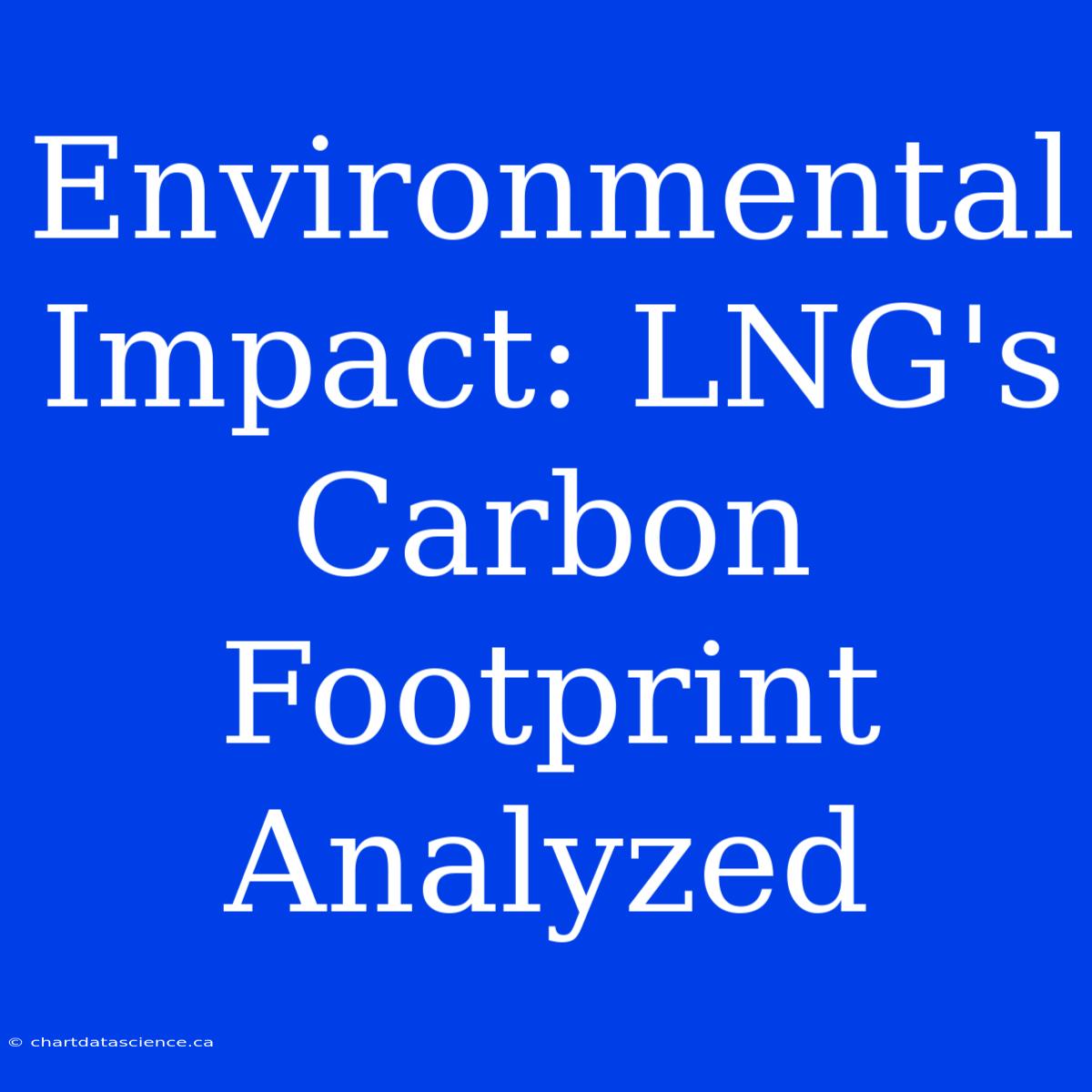Environmental Impact: LNG's Carbon Footprint Analyzed
The quest for cleaner energy sources has led to increased interest in Liquefied Natural Gas (LNG). But is LNG truly a greener alternative to traditional fossil fuels? To answer this question, we need to dive deep into the carbon footprint of LNG production, transportation, and usage.
From Well to Burner: Unpacking the Carbon Footprint
LNG's carbon footprint is multifaceted, encompassing:
- Extraction and Processing: Natural gas is extracted from wells, often via fracking, a process with its own environmental concerns. Gas is then processed to remove impurities, requiring significant energy consumption.
- Liquefaction: Natural gas is cooled to -162°C to transition into its liquid form. This energy-intensive process accounts for a substantial chunk of LNG's carbon emissions.
- Transportation: LNG is shipped globally in specially designed tankers. While more efficient than transporting natural gas via pipeline, shipping emissions contribute to the overall footprint.
- Regasification: To be used, LNG needs to be regasified back into its gaseous state, another energy-intensive process.
- Combustion: Finally, LNG is burned for power generation or industrial uses, releasing greenhouse gases like CO2.
The Carbon Accounting Conundrum:
While LNG is primarily composed of methane, a potent greenhouse gas, it emits significantly less CO2 per unit of energy produced compared to coal. However, the entire lifecycle emissions of LNG, including those from extraction and transportation, need to be considered for a holistic picture.
What are the Numbers Saying?
Studies have estimated that LNG's lifecycle emissions are roughly 25-35% lower than coal, making it a more attractive option for reducing CO2 emissions in some scenarios. However, these numbers are subject to variations depending on the specific extraction methods, transportation distances, and combustion technologies employed.
A Mixed Bag: Potential Advantages and Disadvantages:
-
Lower CO2 Emissions: Compared to coal, LNG burns cleaner, offering a potential path toward reducing greenhouse gas emissions.
-
Flexibility and Accessibility: LNG is transported easily by sea, making it a viable energy source for regions without access to natural gas pipelines.
-
Potential for Carbon Capture and Storage (CCS): LNG infrastructure can be integrated with CCS technologies, potentially further reducing emissions.
-
Methane Leakage: The extraction, processing, and transportation of natural gas can lead to significant methane leakage, a potent greenhouse gas with a much higher global warming potential than CO2.
-
Environmental Concerns of Fracking: Extraction of natural gas often involves fracking, a technique that raises concerns about water contamination, seismic activity, and air pollution.
-
Land Use Impacts: LNG infrastructure, including processing facilities, pipelines, and shipping ports, requires significant land usage.
The Bottom Line:
LNG is not a silver bullet for tackling climate change. While it offers advantages over coal, its carbon footprint remains a significant concern, particularly due to methane leakage and the environmental impacts of fracking.
The future of LNG is tied to ongoing technological advancements and responsible practices. Increased focus on methane leakage mitigation, adoption of cleaner extraction technologies, and integration with CCS systems are crucial to achieving a cleaner energy future.

